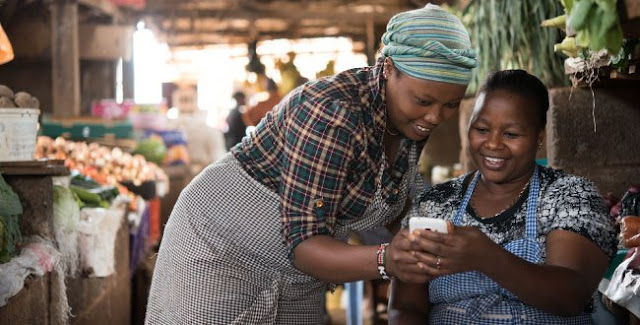East Africa has established itself as a global leader in mobile remittances, and TerraPay is the latest mobile payments platform to enter the crowded space with its launch in Tanzania.
The global company has obtained regulatory approval to launch international money transfer services to mobile wallets in Tanzania.
There are good reasons why companies are flocking to the region. There are huge opportunities in Africa’s mobile remittance segment due to a large number of people living and working abroad who send money home for investment and family support.
“There is also the opportunity created by intra-Africa businesses that require money transfer from one African country to another,” says Danson Njue, an analyst at Ovum. “The continent has a relatively high mobile penetration rate and a developed mobile money service platform which supports the growth of the mobile remittance sector.”
Experts say Tanzania, Zambia and Zimbabwe are challenging Kenyan operators for dominance of the sector. More and more players are entering the mobile remittances space, with Tigo launching an international remittance service and South African company Mama Money expanding to Tanzania earlier this year, IT Web Africa reported:
There is also interoperability between customers of MTN Mobile Money and Vodacom’s M-Pesa, with the arrival of TerraPay, which is part of the Mahindra Comviva group and provides interoperability engines – a further development.
The regulatory approval means Tanzania is now part of the TerraPay global network, which will allow partners from across the world to send money to mobile wallets in the country. Tanzanian diaspora in the U.K., France, Italy, Canada, U.S., South Africa and elsewhere can send remittances directly to Vodacom M-Pesa, Tigo Pesa, Airtel Money and Zantel Ezy Pesa Mobile Money accounts by visiting a participating TerraPay store.
In 2015, the World Bank reported remittances to Africa reached US$35 billion, excluding the amount transferred through informal channels. Mobile methods of sending money are vital due to the high cost of sending remittances in Africa via formal channels — between 8 percent and 20 percent of each transaction.
Since Kenya’s launch of M-Pesa a decade ago, East Africa has set itself up as a leader in mobile money. Aside from mobile money operators, global firms like WorldRemit and TerraPay see the region as a major base.
WorldRemit tracks the development of the sector back to the launch of M-Pesa. Recent figures released by the money transfer company show that the Kenyan diaspora is the biggest sender of digital remittances to mobile accounts.
Transfers to mobile money accounts make up 93 percent of WorldRemit’s transactions to Kenya, proving that Kenyans continue to be early adopters of innovative technology, even when abroad.
In January 2017 alone, WorldRemit customers transferred more than US$140 million to Kenya, while Kenyan internal remittances reached a record US$161 million in November 2016, making remittances one of the nation’s top earners.
But it is not just Kenya. East African countries including Tanzania, Uganda and Rwanda are also leaders in this space and have competitive markets.
Lehlohonolo Mokenela, an industry analyst at Frost & Sullivan, says East Africa and South Asia are reporting high growth in the volume of mobile money-based remittances.
“The affinity for mobile wallets in East African markets such as Kenya and Tanzania is expected to enable the growth of international remittances in the region, Mokenela said. “Service providers such as TerraPay are already looking to enable the development of this market in different parts of the continent.”
Making different mobile transfer services interoperable in different countries is a vital next step for the development of the market. Again, East Africa is leading in this, with Tanzania in particular making major steps forward, but there is more to be done.
“Interoperability is expected to overcome challenges to scale and facilitate micro-transfers across borders, a common theme for Africa’s low-income population,” Mokenela said. “The challenge for the market however, lies in the navigating the regulatory hurdles from one country to the next.”
Njue said there is evidence of increased adoption of mobile money interoperability by service providers to support cross-border and cross-network transfers and grow the sector.
“The need for interoperability is to support mobile remittances and also grow service usage among users. In addition to increasing mobile money usage, interoperability has the potential to unlock the intra-Africa mobile remittance sector which has not had much focus in the past and which holds the key to promoting cross-border trade,” he said.
He said he expected to see some consolidation in the market given how many different companies have entered the space.
“In my opinion, market consolidations may be inevitable in some markets where we have so many operators. However, partnerships will feature most as service providers seek to tap into the opportunities in the sector,” said Njue
Source:afkinsider























